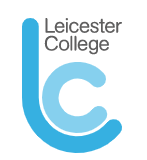T level courses are the latest programme of study available at level 3, making them the same as A levels. There is a large difference, however. There is a significant amount of work placement as part of a T level. This is something that the Universities our students have gone on to really appreciate

T level courses are the latest programme of study available at level 3, making them the same as A levels. There is a large difference, however. There is a significant amount of work placement as part of a T level. This is something that the Universities our students have gone on to really appreciate.
For most of the T level, you work in supportive classrooms to understand childcare and education’s core parts. This prepares you for your 90 days placement in childcare which takes place across the first and second year. In a role that works to your strengths and reflects your interests, you apply all the knowledge of year one to the real world.
You will take part in activities that help you to develop your personal skills, such as building your character and confidence. This will help you to live well and move into your chosen career.
What You'll Learn
Year 1
In year one, there is a lot to learn. Covering the 12 core elements of education and childcare, you build a solid foundation. This year of in-college lessons, workshops and sessions with expert tutors are truly comprehensive. Added to this will be your first work placement. This will be in a primary school. Back in the classroom you will look at;
An overview of childcare and education from ages 0 to 19, including childcare, school and post-16. An introduction to education and childcare work, looking at roles, responsibilities and career opportunities.
Child development from birth to 19, exploring early-years personal development, language and how carers can support children through transitions and significant life events.
Understanding the early year’s foundation framework (EYFF), the national curriculum, how to support children and young people’s education and factors that affect this.
Safeguarding, health and safety and wellbeing – all the statutory guidance and legal requirements as well as the importance of children and young people’s emotional health and wellbeing.
How children and young people’s development affects verbal and non-verbal behaviour, and the strategies you can use to support behavioural development.
An overview of national test assessments and assessors and why it’s important to report on children and young people’s progress.
The basic principles of current equality and diversity practice and why we should promote diversity, equality and inclusion.
Provision for children and young people with disabilities and special educational needs – think professionals and organisations involved with SEND, different models of disability, empowering children and young people and removing barriers.
A range of aspects and strategies to support children and young people when English is an additional language.
The importance of parents, families and carers and how to work with and support them.
How to work collaboratively and establish effective relationships with agencies, services and professionals who support children, families and carers.
The importance of continuing professional development, with models of reflection and feedback.
Year 2
The second year is looking at the occupation specialism. This is where all the knowledge and theories of year one finds their place in the real world. You, your classmates and your tutors examine all the ways you can support the children as they learn about themselves and the world around them.
You explore ways to develop and build relationships with children, and how to plan, provide and review care, play and educational opportunities so each child can progress and build the best future you can.
As with year one, there is significant amount of time in a real world work placement. This year you will be in a day nursery dealing with children from birth to four years old.
You will also begin your industry placement this year, where you will be working towards five key learning outcomes:
Supporting and promoting children’s play, development, and early education
Developing relationships with children to facilitate their development
Planning, providing and reviewing care, play, and educational opportunities to enable children to progress
Safeguarding and promoting the health, safety, and wellbeing of children
Working in partnership with colleagues, parents, carers, and other professionals to support children’s development.
During your placement in a nursery or school, you build your confidence with real-life experience and you work through your employer-set project to show you’ve grasped the intricacies of this career path.
Safeguarding and promoting the health, safety and wellbeing of children is vital, and you also learn to work effectively with colleagues, parents, carers and other professionals in a child’s life for 360 care and attention.
Here at Leicester College, we offer a comprehensive range of further education courses and post 16 training, in support of technical, vocational and higher education qualifications across a broad range of subject areas, including ESOL, from post 16 entry to university level to around 19,000 students, who range in age from 14 to 75.
© 2025 coursetakers.com All Rights Reserved. Terms and Conditions of use | Privacy Policy